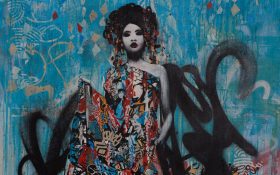Powerful stories can change a reader’s beliefs and way of life. I turned vegetarian years ago when a copy of Peter Singer’s Animal Liberation fell off the library shelf and hit me; I became engrossed in information I would rather not have read. I was curious when I heard that Voiceless, a non-profit animal protection organisation that focusses on raising awareness and promoting compassion for animals, were offering their first Writing Prize. I wondered whether the stories they short-listed for the prize would grip the readers and make them question their choices.
The 2013 Voiceless Anthology
is the eclectic collection of stories and essays that were short-listed. These were selected by a prestigious judging panel including Nobel Laureate J. M. Coetzee and Literary Editor of the Sydney Morning Herald, Susan Wyndham. It is clear from even a cursory glance at the book’s contents that animal rights is a broad church, as the contributors have very varied perspectives and priorities.
The anthology is definitively Australian, featuring kangaroos, bilbies and wombats as well as the landscape, moving from beach town to city to outback. The Indigenous relationship with land and animals is touched on sporadically, but is explored thoroughly in ‘They Are Not Voiceless’, written by Indigenous and non-Indigenous researchers in Bawaka Country. It is here that the Western, non-Indigenous attitude to animals is presented most shamefully, whereby animals are not considered as part of a relationship but purely in commercial terms as commodities. The Bawaka Country writers, valuing animals as part of a symbiotic relationship together with the land and elements, stress that animals are not voiceless: ‘All we have to do is listen.’
The other stories explore our assumption that animals are for human use and benefit. Meera Atkinson’s essay, ‘Confessions of a Vegetarian’, challenges her own hypocrisy as a vegetarian who uses leather and consumes dairy and eggs. ‘These contradictions are hard to justify when you vehemently question, as I do, the assumption that humans have the right to enslave and kill other sentient beings, given viable alternatives.’ Anne Coombs’ memoir essay ‘Fugue for Elsie’ examines how contentious food has become as she considers the inhumanity of industrialised farming (and the problems with even free-range and organic meat) and questions raising animals for consumption. ‘To live so conscious of what it is we are living off can become almost unbearable,’ Coombs says. Her piece will resonate with readers whose ethics make it hard to know what to eat any more.
Several of the fictional pieces in the anthology struck me as predictable, and, considered together, the stories can feel repetitive. I also felt that several writers used gratuitous descriptions in their pieces, presumably to put the reader off dairy or meat for weeks after reading the collection. An example is Hilary Key’s casual description of the ingredients of an Easter egg in ‘Shooting a Wombat’ as ‘the homogenised milk of so many blue-veined and downy udders, and the colostrum of the milk solids’.
The joint winning stories, Craig Simpson’s ‘Kangaroo’ and Wayne Strudwick’s ‘Caged’ were the most grabbing and touching stories in a collection filled with dismal and often horrific stories.
The 2013 Voiceless Anthology is thought-provoking but perhaps lacks a sense of hope or solutions for an industry that has lost its humanity. It is an important collection that is probably preaching to the converted, as I suspect that most meat eaters would avoid it. Still, I like to think that if this book falls off the shelf and hits a meat eater, just as I experienced years ago, they won’t want chicken or roo for dinner again soon.
Rating: 3 ½ stars out of 5
The 2013 Voiceless Anthology
Selected by J.M. Coetzee, Ondine Sherman, Wendy Were and Susan Wyndham
Paperback, 240pp, RRP $22.99
ISBN: 978-2-74331-330-5
Allen & Unwin





